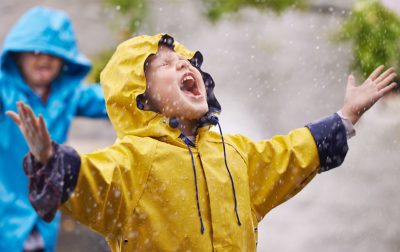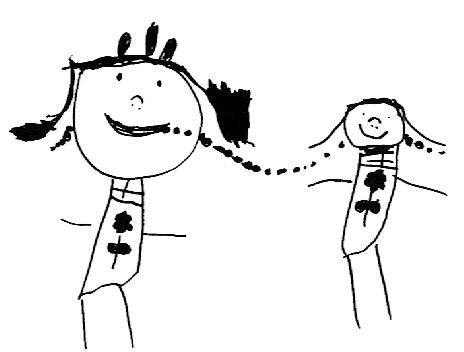
In the entrance to the Diana school in Reggio Emilia, we see a large banner that hosts the phrase, ‘nothing without joy’. Although attributed to Loris Malaguzzi, Alfredo Hoyuelos notes Malaguzzi’s acknowledgement to the writing of French philosopher, Michel de Montagne in his book, La estética en el pensamiento y obra pedagógica de Loris Malaguzzi. Hoyuelos records the questions posed by Malaguzzi in 1981 and these questions, in the current world crisis, in a climate of despair, worry and fear, are just as pertinent today. Can we live without joy? Can you teach without joy?
The concept and value of joy should be embedded in our current pedagogical offerings, which, during the COVID-19 crisis, might be offered face to face, in an online environment or in a blended delivery of both. How can we educate and enrich the lives of children without a spirit of joy, a sense of courage and hope? Every educational service makes ethical choices reflective of their values and, we should ensure that these values are not left at the metaphorical door of the COVID-19 crisis. We need to be sure that our new interpretation of pedagogy does not subject children to the tyranny of transmissive entertainment and boredom.
According to Malaguzzi, ‘every child born into the world represents a challenge, an interrogative. A kind of adventurer who may venture a thousand unforeseeable paths. He has within himself the possibility, ‘the possibles’ of being different from how we know him. This is his freedom and his responsibility, the one that growing imposes on him’ (Hoyuelos, 2013, p. 65). This image of the child is one that we should consider in relation to the current image of the educator, most who are finding themselves in unknown and unchartered pedagogical waters. Educators have the possibility and perhaps freedom now to choose which of the thousand unforeseeable paths they will venture down. There are many strategies for educators to embrace the unknown, but whichever they choose, could they include the values of engagement, enchantment and joy?
Could we set the pedagogy of logic and cognition aside for a while and focus our attention on the pedagogy of imagination and creativity; a pedagogy where joy can be generated? Could we shift our focus for a minute from the dominant discourse of the information age to a conceptual age of the 21st century where we may embrace Daniel Pink’s concepts of design, story, symphony, empathy, play and meaning? Can we use these concepts, and a rich image of the child to stimulate idea generation and experimentation in a new reimagined 2020 pedagogy?
Ask yourself:
- Does your current reimagined curriculum consider the importance of the environment in which the learning is taking place? Are you providing suggestions for children to gather and hunt for materials that will take them outside of the house, to connect with the natural world and to practice observation?
- Are you asking families to record their children’s thoughts, theories, questions and ideas during this time? Are the children’s thoughts and concerns similar? What will their memories be of this time? Can these memories be shared with other children in some way? Are the children’s memories filled with fear? Or joy? If children are fearful, what can educators do to reorient their thinking? How will this world health crisis contribute to their identity?
- Are you providing or suggesting experiences for children to laugh, to experience enchantment and joy? To wonder what lives at the bottom of a puddle, to create shadows or to make a joke book?
Children are citizens of the present and society and we need to ensure that their rights during this ‘present’ are not forgotten and are not marginalised. Educators, more than ever, have a responsibility in their daily contexts to enact continuous critical reflection. Let’s embrace this responsibility with a spirit of courage and a willingness to venture down a thousand unforeseeable paths in pursuit of each child right to optimism, playfulness and more pertinently, joy.
References:
Hoyuelos, A. 2006. La estética en el pensamiento y obra pedagógica de Loris Malaguzzi. Spain, Octaedro Ediciones, S.L
Hoyuelos, A. (2013) The ethics in Loris Malaguzzi’s philosophy. Reykjavik. Isalda.

